Filsafat
God is creative. When He created mankind in His image He bestowed the gift of creativity upon man and woman. This creativity can be expressed in a number of ways. Music particularly allows people to express their soul as an individual and as community. Music can be used as a tool of story-telling, entertainment, personal expression and devotion, celebration and worship.
Teaching music encourages students to develop skills that will allow them to express themselves in corporate and individual celebrations and devotion. As the Bible says “Whatever your hand finds to do, do it with your might; …” (Ecclesiastes 9:10), students are encouraged to develop their creative skills of music to their utmost potential. They will also develop a better appreciation of God’s creativity in creating music through this course. Scripture references: Genesis 1: 26, Judges 5: 3, Job 21: 12, Psalm 27: 6, Psalm 33: 2, Psalm 108: 1, Psalm 144: 9, Ephesians 5: 19
Course Objectives
In this subject students will learn to develop basic acoustic guitar playing skills, basic piano skills, basic drum and percussion skills and, basic bass guitar skills. Students will compose a variety of songs for devotion, (ESLR: RUC) reflection and stage production and perform music using these instruments. (ESLR: DC) Students will read from chord charts and learn to read tabs. Students will also learn to read from the treble clef stave. Students will study rhythm- how to use and write in various rhythms and metres. Students will examine pitch, the use of sharps and flats, tones and semitones. Students will learn the various major and minor scales, the pentatonic scale and blues scales. Students will develop the skill of listening to music with appreciation (ESLR: NLL, ET) and correctly identify musical intervals and chord patterns. Students will examine the use of triads, tonic, primary and secondary, in creating harmonic structures in music. Students will examine the development of popular music in history and especially during the 20th century until present. (ESLR: SCW) Students will score music using computer software. Students will learn to use a sequencer to compose music.
Textbooks and Resources
- In Tune With Music Book 1 by Ian Dorricott and Bernice Allan, McGraw-Hill Australia
- In Tune With Music Book 2 by Ian Dorricott and Bernice Allan, McGraw-Hill Australia
- In Tune With Music Book 3 by Ian Dorricott and Bernice Allan, McGraw-Hill Australia
- Exploring Film Music by Ian Dorricott and Bernice Allan, McGraw-Hill Australia
- Music Explained by Gaynor Grant, McGraw-Hill Australia
- Various Music Recordings
Materials
- Acoustic guitars
- Piano
- Drum kit
- Various percussion instruments
- Bass guitar
- Keyboard
- CD/MP3 player.
- Flash Drives
- Journal
- Manuscript Papers
Time Allotment
50 minutes every day, 5 days a week.
Course Content
- Musical Theory, History of 20th Century Music
- Annotation of Music, Charting Music
- Programming Music
- Basic Keyboard Skill
- Basic Guitar Skill
- Speaking and Presentation Skills
- Stage Presentation Skills
- Singing, Playing and Performing
Evaluation
Composition – 20%
Tests – 30%
Projects and Performances – 40%
Class Participation – 10%


